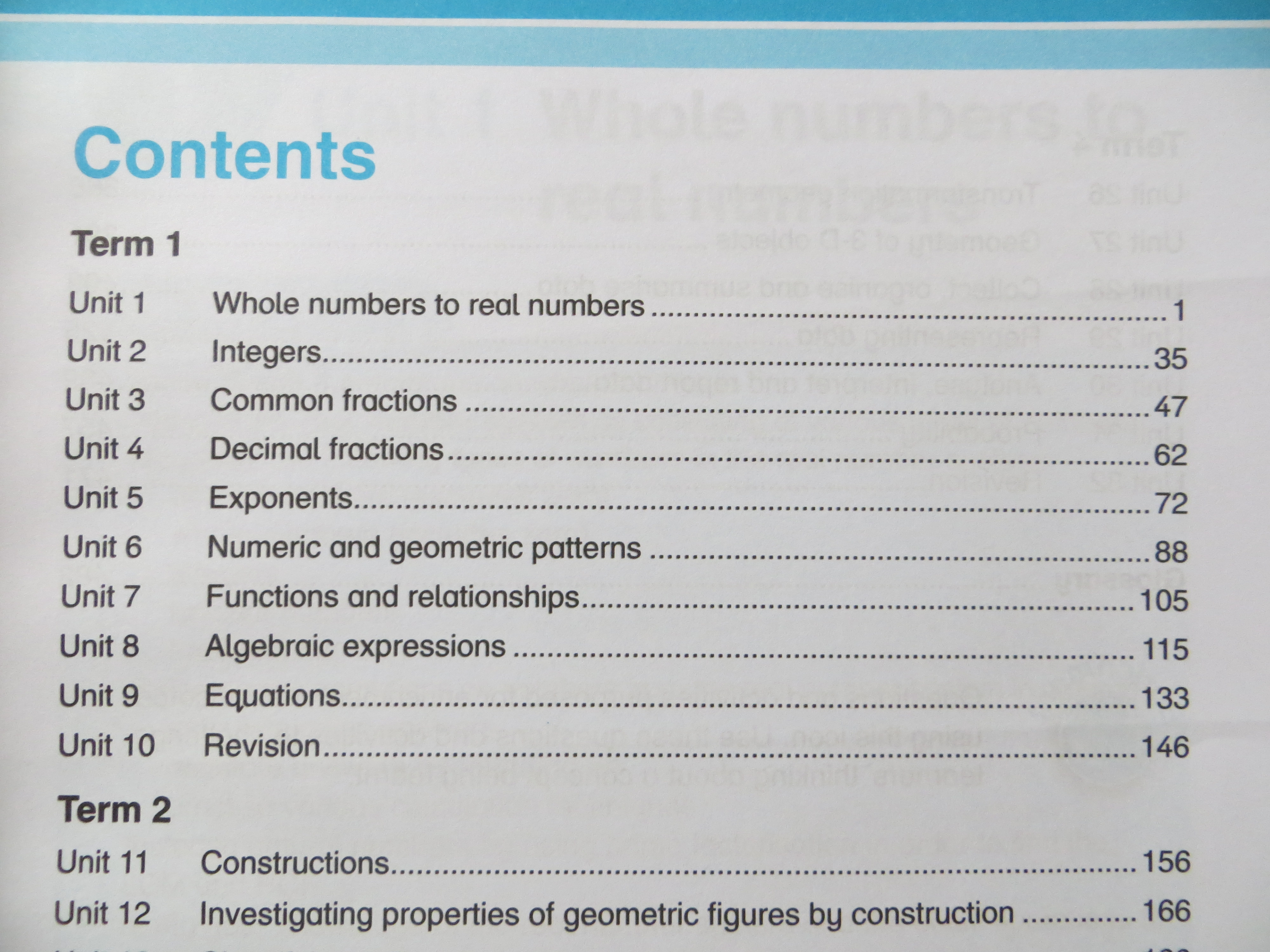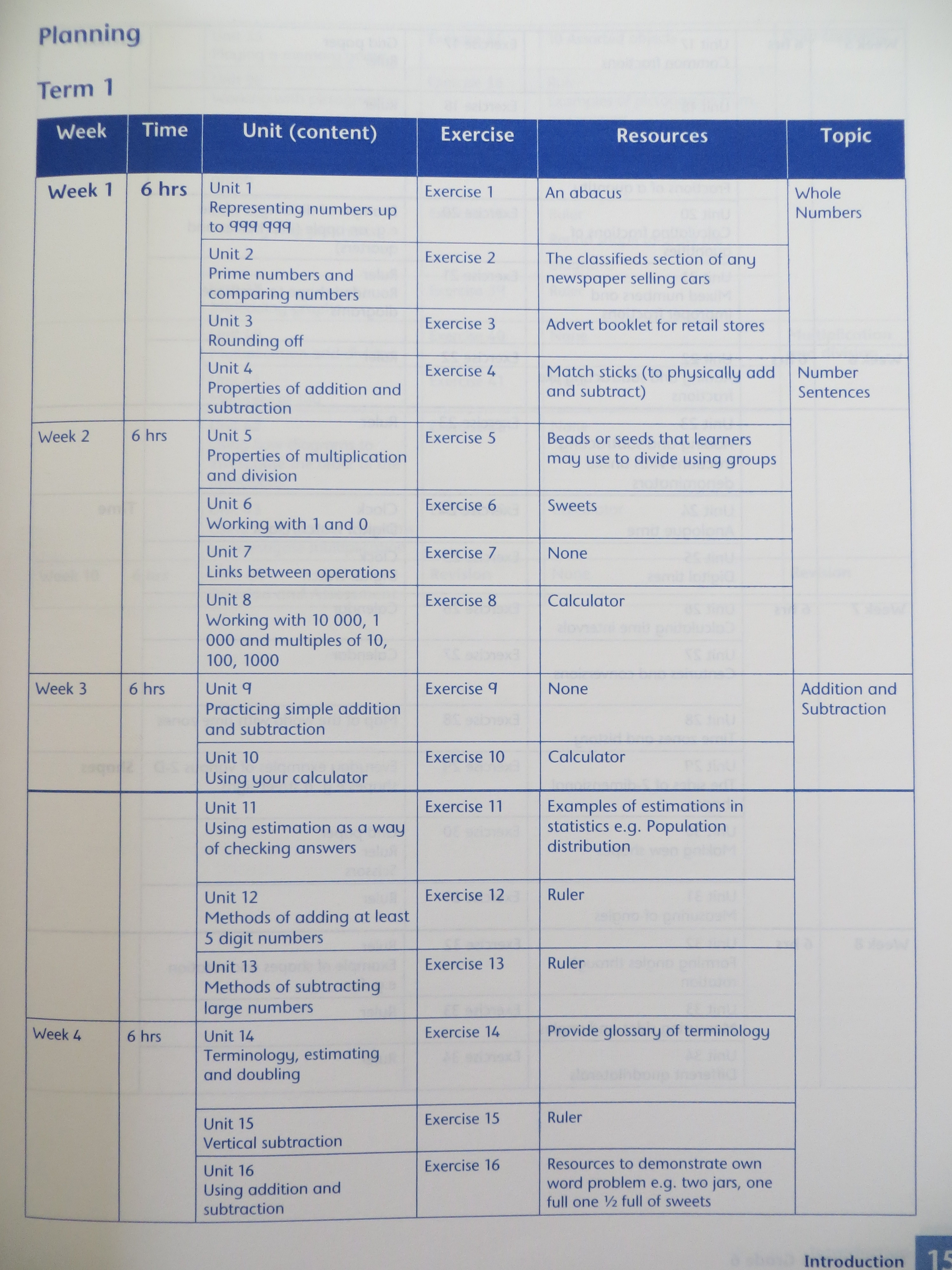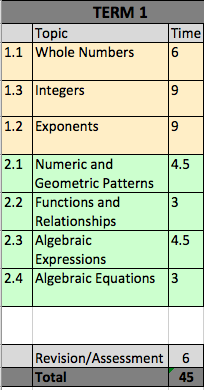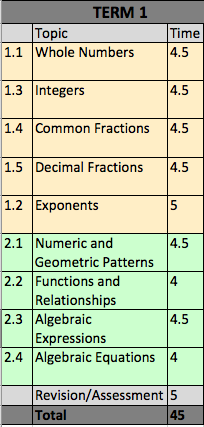In South Africa most teachers follow the ‘Curriculum and Assessment Policy Statement’, which is commonly referred to as ‘CAPS’. Anecdotal evidence from the AIMSSEC winter school held in Stellenbosch in July 2014, conversations with teachers and elsewhere (e.g. twitter), suggests that teachers value activities which are closely aligned with CAPS. Further, our understanding from stakeholder meetings is that they are more likely to implement new activities for formative assessment if these fit in with CAPS.
The South African Curriculum and Assessment Policy (CAPS) specifies not only WHAT content should be taught but also WHEN it should be taught. Although CAPS only specifies in which term specific topics should be covered and how many hours should be spent per topic, some provinces have pace setters specifying what needs to be taught each week.
All curriculum-aligned textbooks arrange content per term. The contents page from the Grade 9 Solutions for all textbook provides an example.
and some even specify what to do each week, as seen in these examples taken from the teaching guide of the Gr 8 Classroom Mathematics textbook:
The implication for the project is that teaching activities from the toolkit should be aligned to the content teachers are expected to teach. Further, activities should address content to be taught at a convenient time within the school term (for example, not in the first or last week).
The project will involve teachers from both Grade 8 and Grade 9 classrooms. Initially, the classroom activities should be chosen so that they can be taught in either grade in the first term (January to March 2015); the broad topic areas identified were exponents and algebraic equations. Both topics are considered to be difficult topics to teach.
It seemed sensible to select classroom activities from pre-existing resources. For example, the Mathematics Assessment Project has a bank of over 100 activities which have been developed over a period of years, extensively trialled in classrooms and refined in the light of observations from trained observers and the teachers who used the activities. These activities were developed to promote formative assessment practices and could be seen as particularly suitable for FaSMEd.
The activities are not meant to be used to teach a topic, but rather to bring together some of the key ideas within the topic, making links across the topic and using a range of representations where appropriate.
Two activities from this bank of resources were selected:
We made spreadsheet of the topics in Gr 8 and 9 and when deciding on topics for the activities we chose ones that can be done in BOTH grades during the first term. (see Difficult topics to teach for why we chose these ones in particular).



